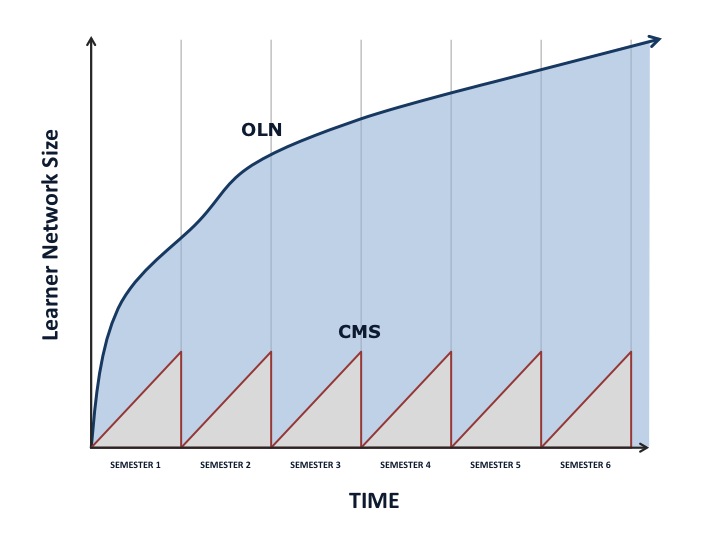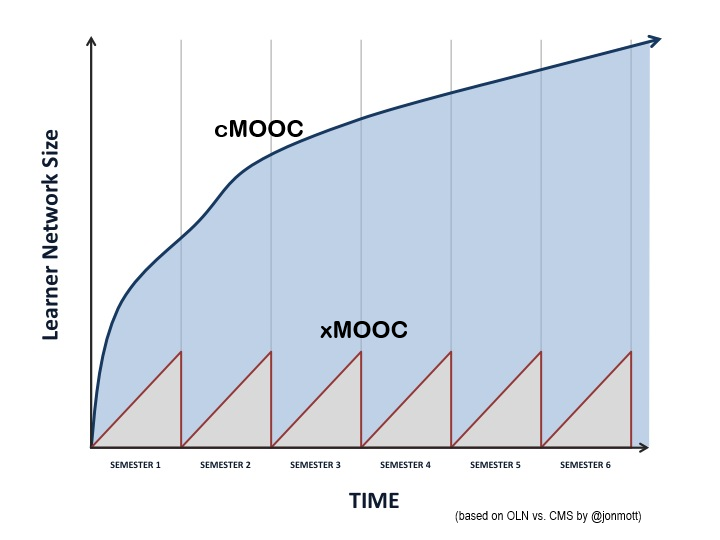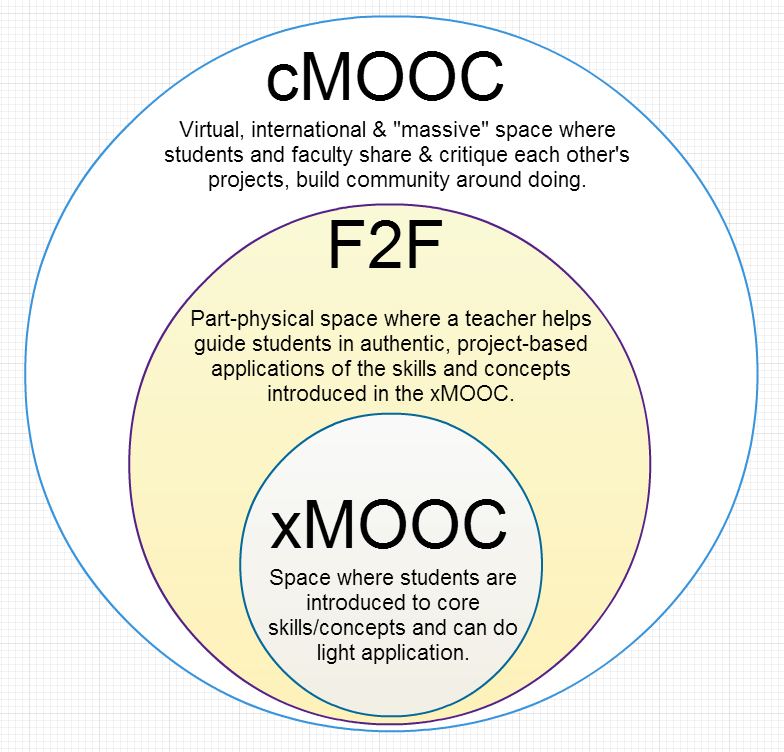For those that may be unfamiliar with the terminology, xMOOCs is a term used to refer to the current breed of elite hyper-centralized Coursera- and Udacity-style MOOCs. The term distinguishes them from the early and ongoing cMOOCs: massive classes that were built as largely decentralized networked learning experiences. You can read more about the differences here (and you should click that link if you are unfamiliar with these terms -- these are important distinctions).
My sense is that, when compared to cMOOCs, xMOOCs have a community problem.
Sure, you can get an answer to a math problem at 2 a.m. from a student in the Czech Republic, and that's pretty cool. But whereas cMOOC communities persist and do meaningful things in the world, in general xMOOC communities are less robust. They don't persist. They connect students as students, but not as colleagues.
It reminds me of this old diagram from Jon Mott and David Wiley comparing Open Learning Networks to class networks based on a CMS:
Which could easily be updated as
The point, obviously, is that when you finish a cMOOC, your relationships with members of that course don't end. You don't keep in touch with all 10,000 people, of course, but people in a cMOOC often cite the valuable relationships they fostered in the cMOOC as one of the big takeaways. These people end up part of their permanent Personal Learning Network, as members of their twitter feed, as tumblr or blogger friends, as emailable resources, etc. On the other hand, much xMOOC social connection seems to die at the end of the course, and not persist in any useful way.
One of the reasons this happens is that too much of the conversation in an xMOOC happens inside the proprietary system. A lot of people teaching xMOOCs have worked around that. I know Stanford Online sets up IRC channels for their courses that live long after the course is gone, and that many professors in the CourdacityX courses push conversations to Twitter and other social media channels. That's good, and I hope they keep moving in that direction.
But the other piece that makes the networks less robust is that the primary focus of the social interaction is often the course itself, and not the individual work or interests of the students. Communities thrive and survive when they are tied to things you do -- your work, your hobbies, your music. They will survive the class to the extent that they have been built around activities that are bigger than the class itself.
That's why I think that if xMOOCs want to truly have persistent, effective communities they are going to have to build the community not around success in the course, but around larger, more authentic applications of course content. To a certain extent, the xMOOC will have to become the chewy center of the cMOOC.
I'm not saying this is revolutionary. It absolutely already exists. You can make an argument that this is a version of ds106, or a cMOOC with a more rigid assignment core. And you can, of course, cut out the F2F layer there if you want -- it could be an online subcohort layer, or you could eliminate it entirely. I work in blended learning, so this happens to be the scenario I'm interested in.
You can also argue that if the massive cohort is structured as a cMOOC, then the xMOOC is really just a collection of shared digital resources. and not a MOOC at all. Perhaps it's a "distributed flip". I wouldn't argue with you there.
But I think the basic idea is sound, and the direction that the "massive" communities of xMOOCs are going to go if they are going to retain meaning. This is particularly the case now that xMOOCs are moving into blended scenarios where a global community based on xMOOC assignments is a bit redundant when students have access to a local face-to-face subcohort. That subcohort will absorb a lot of the interaction that is now being handled in the massive cohorts of xMOOCs, potentially making the larger community a bit meaningless unless it becomes somewhat more authentic.



